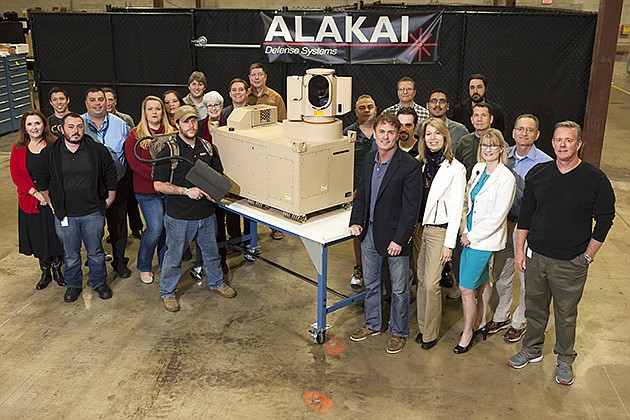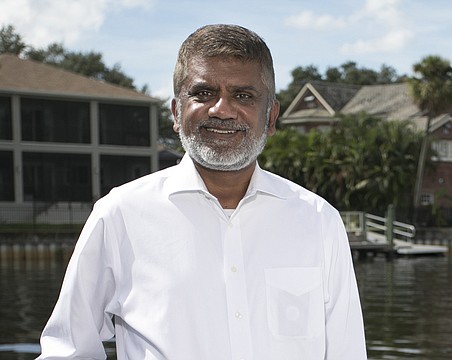Alakai Defense Systems founder and former U.S. Army Special Forces commander Ed Dottery led with a simple question at a recent venture capital funding conference.
“Who here would want to touch bombs?” he asked. When no one raised their hand, he said “Exactly. You're my customer.”
Largo-based Alakai creates laser sensor systems that can detect explosive devices, chemical warfare agents and other hazardous materials from long distances. The company's mission is straightforward: “We were soldiers. Our children are soldiers. We protect soldiers.”
A focus on the military has helped build a viable business over the last decade: The firm had $9.8 million in revenues in 2015 and has 35 employees, up from $3 million and 20 employees in 2010.
Now Dottery, who founded the firm in 2003, aims to expand Alakai's customer base in the civilian world. The Department of Homeland Security and police departments are a solid potential place to start.
Dottery, for example, says the shooters in San Bernardino, Calif., last year had pipe bombs in place to target first responders. Fortunately, they didn't go off. “It's a good thing they weren't good bomb makers,” he says. “I don't think law enforcement is ready.”
Although commercial sales have been a goal at Alakai for some time, the firm has taken several steps to accelerate the process. One was the recent conference hosted by the Florida Venture Forum, at the Vinoy Hotel in downtown St. Petersburg, where Dottery pitched Alakai to a room full of possible investors. He seeks $5 million in funding that will go toward research that will help reduce the size, weight and costs of the firm's products.
Alakai offers three key products: a Check Point Explosive Detection System (CPEDS), a Portable Raman Improvised Explosive Detector (PRIED), and a Critical Infrastructure Protection System (CIPS).
The Check Point system, the largest of the bunch, costs a little more than $1 million, Dottery says, and can detect explosives at long ranges. Per the Army, Dottery is not allowed to share exact distances, but he uses “sports fields” as a fair description. The PRIED is a portable backpack bomb detection system with a more limited range and costs in the low six figures.
With products as high-tech as laser-detecting bomb sensors, simplicity wouldn't seem to have a place. But with the control panel of CPEDS, a simple Xbox controller does the job, costing the company about $50 rather than $5,000, Dottery says. The idea came from a suggestion from one of the users, Dottery says.
Alakai is currently testing the third phase of CPEDS in Virginia, for which it received an $8.7 million contract. And the PRIED system would be useful for law enforcement officials, so “they wouldn't have to wait for the bomb squad to arrive,” says Dottery.
The CIPS product, a portable monitor for walk-through checkpoints, can also be a useful commercial product. Dottery likens it to a metal detector wand at an airport. “You could use it for something like the Super Bowl,” he says, “or any place that they want to scan people on their way in.”






